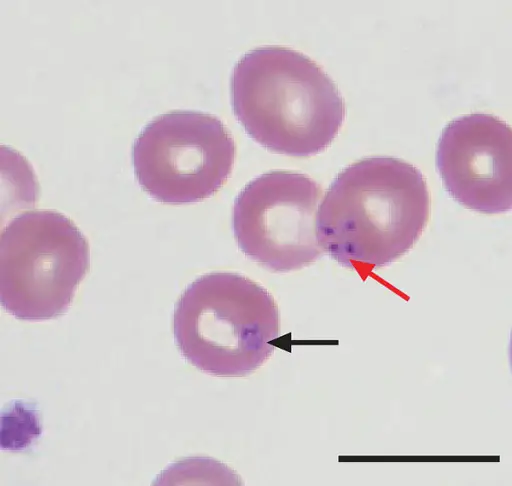Babesiosis Infection is a disease caused by microscopic parasites that infect red blood cells.
What is the Pathology of Babesiosis Infection?
The pathology of babesiosis infection is:
-Etiology: The cause of babesiosis infection is microscopic parasites that infect red blood cells. -Genes involved: Not applicable.
-Pathogenesis: The sequence of events that lead to babesiosis infection caused by protozoa of the genus Babesia and is transmitted primarily by tick vectors. Transmission rarely occurs through blood transfusion, organ transplantation, or congenitally.
-Morphology: The morphology associated with babesiosis infection shows intraerythrocytic stages appear singly as small round, ovoid or elongate trophozoites (2-4µm), in pairs.
-Histology: The histology associated with babesiosis infection shows multiple small forms within a single cell that are not a clear schizont form of Plasmodium, easily identified extracellular forms, and lack of malaria pigment.
How does Babesiosis Infection Present?
Patients with babesiosis infection typically are all genders of all ages. The symptoms, features, and clinical findings associated with babesiosis infection include body aches, loss of appetite, nausea, or fatigue, fever, chills, sweats, headache.
How is Babesiosis Infection Diagnosed?
Babesiosis infection is diagnosed by blood tests and microscopic examination of blood smears.
How is Babesiosis Infection Treated?
Babesiosis infection is treated by medications such as Atovaquone, azithromycin, Clindamycin PLUS quinine.
What is the Prognosis of Babesiosis Infection?
The prognosis of babesiosis infection is excellent and most patients recover spontaneously.



